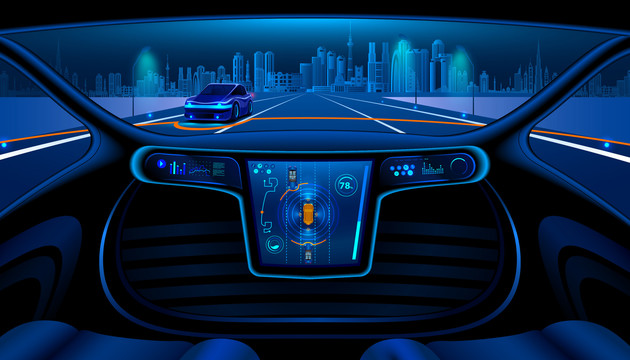
Photo/Shetuwang
Aug. 28 (NBD) -- As technology giants Baidu, Alibaba and Tencent (BAT) are racing to expand presence in the automobile domain, the battle field doesn't only cover investments in auto startups, research and development (R&D) of smart vehicles and automatic drive, but also stretches to the full industrial chain including high-precision map, automobile finance, car sharing as well as automotive after-market.
Driverless vehicles and intelligent vehicle-mounted systems are the two most competitive areas. Li Keqiang, professor at the Department of Automotive Engineering of Tsinghua University, elaborated on the difference between smart cars and the traditional ones in terms of definition, design, R&D, manufacturing and use, saying that intelligent vehicles don't simply equal traditional ones equipped with smart functions. Intellectualization, as the core element, should run through the full life cycle of a smart vehicle, Li underlined.
Over the past several years, BAT have located its specific strategic focus. While Alibaba specialized in smart connected system and high-precision maps and Baidu bet on driverless car platforms Apollo and DuerOS, Tencent allocated wide investment in the industrial chain.
But Baidu, Alibaba and Tencent all have been seeking for cooperation with automakers. Currently, almost all China's domestic auto manufacturers have established tie-up with at least one of BAT. Chang'an Automobile even entered in separate agreements with all these three tech behemoths.
Carmakers don't want to put all eggs in one single basket, therefore, they choose to leverage diversifying strengths and advantages of BAT to sharpen competitive edge, an industry insider told the news portal 21st Century Business Herald. In addition to BAT, other tech companies like Huawei, Xiaomi and JD.com are showing cooperative interest in auto manufacturers.
Gu Jianmin, China Chief Technology Officer at Valeo, held that automakers and BAT take what they need from the win-win cooperation where car networking and man-machine interaction provided by BAT are combined with finished automobiles of traditional manufacturers. Automakers and tech companies have reached a consensus to improve the technology before the connected smart auto industry matures, Gu added.
Foreign self-driving players also intend to take a slice of China's huge market for driverless vehicles.
According to National Enterprise Credit Information Publicity System, Alphabet-owned Waymo set up a wholly-owned subsidiary in Shanghai in May this year.
Waymo, the former Google self-driving project, was valued at 175 billion U.S. dollars by Morgan Stanley in early August.
By making inroads into the Chinese market, Waymo, when putting pressure on BAT, will also face many challenges. An industry insider said that Waymo is leading the global self-driving industry, but Waymo's automatic driving platform is more closed compared with Baidu's Apollo.
Email: gaohan@nbd.com.cn


 川公网安备 51019002001991号
川公网安备 51019002001991号





